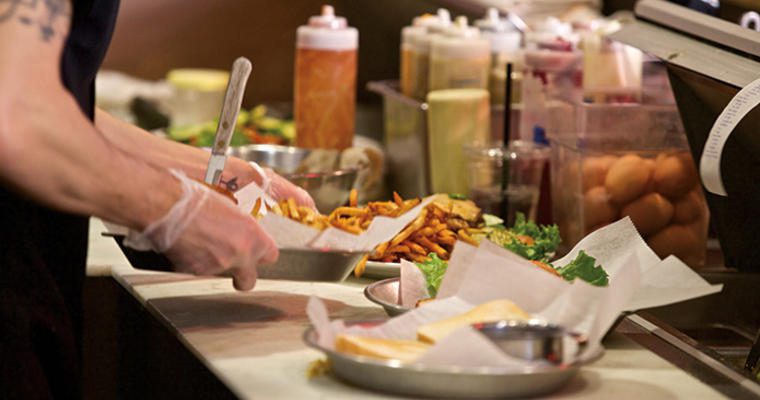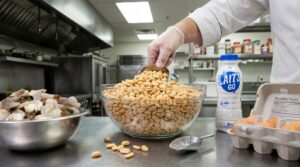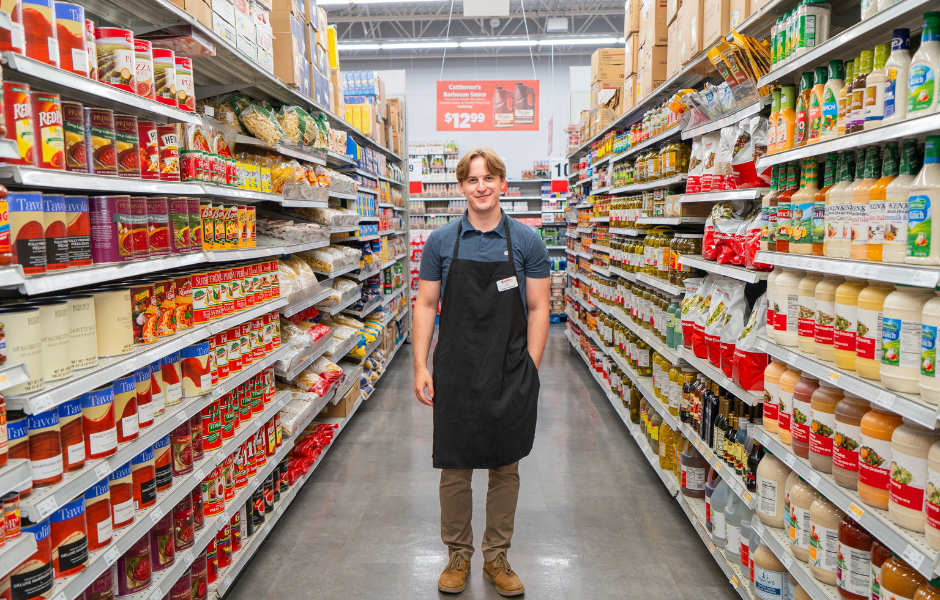Foodborne illness is a preventable and underreported public health problem. One way to limit the spread of foodborne illness in your establishment is to firmly apply the rule of: No Eating in Food Areas.
Norovirus is recognized as the most common cause of stomach flu across all age groups worldwide. Centers for Disease Control (CDC) estimates that each year norovirus causes up to 21 million illnesses, 71,000 hospitalizations, and 800 deaths. Transmission of norovirus occurs primarily through the fecal-oral route, including direct person-to-person contact and indirect transmission through contaminated food, water, or environmental surfaces.
Proper Food Handling Tips to Prevent a Norovirus Outbreak
Noroviruses are also the leading cause of foodborne illness in the United States. Food handler contact with raw or other ready-to-eat foods is the most common scenario resulting in foodborne norovirus outbreaks. Noroviruses are of concern because they are environmentally stable, able to survive both freezing and heating (although not thorough cooking), are resistant to many common chemical disinfectants, and can persist on surfaces for up to 2 weeks. Proper hand hygiene and exclusion of food employees exhibiting symptoms of norovirus disease (i.e., diarrhea or vomiting) are critical for norovirus control.
Norovirus is one of the main reasons employers and employees should not eat, drink, smoke, or chew gum while:
- prepping or serving food.
- working in prep areas.
- working in areas used to clean utensils or equipment.
This policy helps prevent spills onto food and also reduces the chance of contamination. Small droplets of saliva can contain thousands of pathogens. In the process of eating, drinking, smoking, or chewing gum or tobacco, saliva can be transferred to hands or directly to food being handled. Employees should be provided with a designated area to do these things and food handlers that participate must wash their hands before returning to work.
Some regulatory authorities allow food handlers to drink from a covered container with a straw while in prep and dishwashing areas. The drink must be stored so that it cannot spill onto food or food-contact surfaces. For this information contact your local health department. Lastly, no personal food should be stored in direct contact with food served to the customer.
For More Information
Contact the Gordon Food Service Nutrition Resource Center at nrc@gfs.com for assistance with your food-safety questions or concerns.
Sources:
http://www.cdc.gov/vitalsigns/norovirus/index.html
http://www.cdc.gov/norovirus/downloads/keyfacts.pdf











